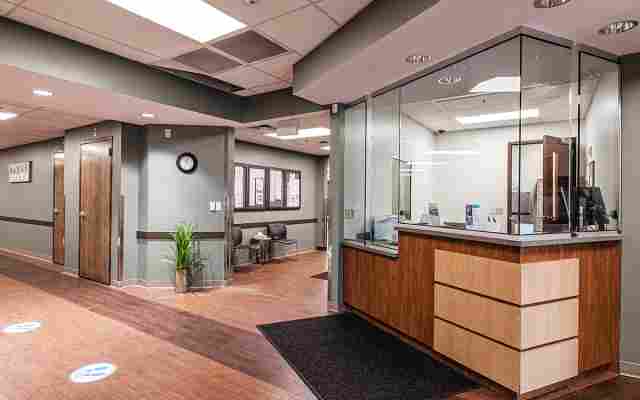
Recovery from addiction is a deeply personal and often challenging journey that requires a supportive and secure environment. In Portland, many individuals seeking to overcome substance use disorders find themselves at a crossroads, needing a place that offers more than just treatment—one that provides safety, compassion, and structure. Pacific Ridge’s inpatient care program is designed to meet these critical needs, creating a sanctuary where healing can truly begin. We will explore how this approach fosters a sense of security and stability, which are essential components for successful recovery, and why such an environment matters deeply for those facing the complexities of addiction.
The Foundation of a Secure Recovery Environment
Pacific Ridge inpatient care emphasizes more than medical treatment; it prioritizes building a safe and nurturing space where individuals feel protected from outside stressors and triggers that often complicate recovery. Addiction recovery requires removing individuals from environments where substances are readily available or where unhealthy patterns are deeply embedded. By providing a controlled setting, the program helps reduce the risk of relapse and allows clients to focus fully on healing. This secure environment is fundamental because it creates an atmosphere free from judgment and distractions, enabling people to engage actively in their recovery journey.
The structure of inpatient care plays a vital role in cultivating this sense of safety. Clients follow a carefully planned daily routine that balances therapeutic activities with time for reflection and rest. This predictability helps to restore a sense of normalcy, which addiction often disrupts. Moreover, the 24/7 availability of professional care ensures that immediate support is always accessible. This constant presence of attentive staff reassures clients that they are not alone in their struggles and that help is available whenever it is needed. It also means that any medical or psychological emergencies can be addressed promptly, offering an additional layer of protection.
Importantly, the community aspect within inpatient care contributes significantly to this secure environment. Living and healing alongside others facing similar challenges fosters connection and mutual understanding, reducing feelings of isolation and shame that frequently accompany addiction. These shared experiences create a foundation of trust and empathy, allowing clients to support one another and form lasting bonds. The interpersonal relationships formed here often become a crucial part of a client’s ongoing recovery network after leaving the program.
Creating a safe haven also involves addressing the physical environment itself. The facility’s design and setting contribute to a calming atmosphere that encourages relaxation and reduces anxiety. Whether it is through comfortable living spaces, quiet outdoor areas, or thoughtfully planned common rooms, every element aims to promote well-being. The surroundings help clients feel at ease, which is essential when confronting the often overwhelming process of recovery.
This holistic approach to safety—encompassing emotional, physical, and social elements—distinguishes inpatient care programs like the one offered by Pacific Ridge. It acknowledges that true healing requires more than detoxification or counseling alone; it demands a place where individuals can rebuild their lives from a foundation of trust, comfort, and security.
Comprehensive Care Tailored to Individual Needs
Beyond providing a safe setting, the inpatient care program offers a comprehensive range of therapeutic options that support holistic healing and recovery. Recovery is not a one-size-fits-all process; every person’s experience with addiction is unique, influenced by personal history, mental health conditions, and social factors. Recognizing this, the care team designs individualized treatment plans that address physical health, emotional well-being, and behavioral changes simultaneously.
Medical supervision is a critical component, especially during the initial stages of recovery when withdrawal symptoms can be severe and potentially dangerous. The availability of medical professionals ensures that clients receive appropriate interventions and medications as needed, helping to manage discomfort and maintain safety. This attentive care enables individuals to progress through detoxification with a reduced risk, creating a stable foundation for further therapeutic work.
In addition to medical care, various evidence-based therapies form the core of the program’s approach. These include cognitive-behavioral therapy (CBT), motivational interviewing, group therapy, and holistic practices such as mindfulness and yoga. By combining multiple treatment modalities, the program offers clients tools to understand the roots of their addiction, develop coping mechanisms, and rebuild healthier patterns of thinking and behavior.
Family involvement is another key aspect that strengthens the recovery process within inpatient care. Addiction affects not only the individual but also their loved ones, and healing often requires repairing strained relationships and building supportive networks. Through family counseling sessions, clients and their families work together to enhance communication, rebuild trust, and foster a more stable environment for ongoing recovery after discharge.
Pacific Ridge’s program also emphasizes life skills development, preparing clients for the challenges they will face upon returning to their daily lives. This might include vocational training, stress management techniques, and strategies for maintaining sobriety in social situations. Equipping clients with these practical tools helps bridge the gap between inpatient care and long-term recovery, reducing the likelihood of relapse.
The comprehensive nature of this care model ensures that individuals receive not only immediate relief from addiction but also lasting support that promotes sustained well-being. The careful integration of medical, psychological, and social elements within a safe environment maximizes the chances of a successful outcome.
Recovery from addiction is a journey that demands more than determination—it requires a secure and supportive environment that nurtures healing on multiple levels. Pacific Ridge’s inpatient care in Portland offers just that: a sanctuary where individuals can find refuge from external pressures and focus fully on rebuilding their lives. By providing structured daily routines, continuous professional support, and a community of peers, the program creates a foundation of safety that is essential for overcoming addiction. Combined with tailored therapies and family involvement, this approach addresses the complex nature of recovery, preparing clients to face the future with resilience and hope. For many, finding a haven like this marks a turning point toward lasting change and a renewed sense of purpose.